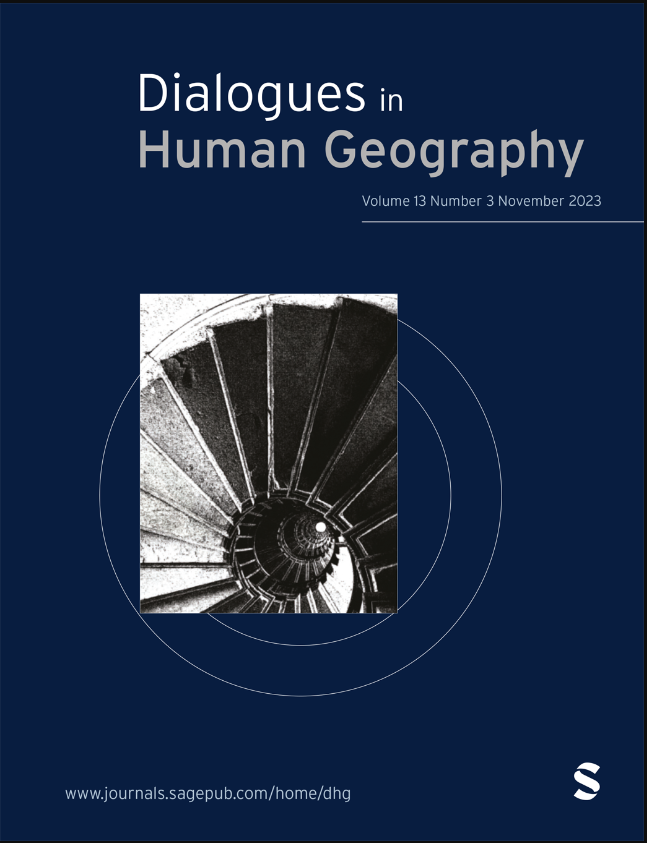Unsettling relatonality: Attachment after the ‘relational turn’
IF 8.2
1区 社会学
Q1 GEOGRAPHY
引用次数: 1
Abstract
In this response, I place the concept of attachment in the context of debates about the ontological commitments and political-ethical value of relational thinking today. Reading the four commentaries in this forum as emerging from and enacting a fraying of the promise and hold of relational thinking, I explore how, together, they pose a series of questions to my account of attachments as trajectories that ‘bring closer’ a promissory ‘object’: how do some objects become promissory, what, if anything, is the outside of attachment, and what accompanies attachments? The terms through which the commentaries pose these questions and complement the concept of attachment – economies, desire, problem, detachment – revise and supplement my vocabulary and research agenda for a cultural geography of attachment. Simultaneously, they question and challenge relational thinking more broadly.不稳定的相关性:“关系转向”后的依恋
在这一回应中,我将依恋的概念放在今天关于关系思维的本体论承诺和政治伦理价值的辩论中。在这个论坛上,我阅读了四篇评论文章,它们是从关系思维的承诺和把握中产生并实施的,我探讨了它们是如何共同向我的描述提出一系列问题的,即附件是“拉近”承诺“对象”的轨迹:一些对象是如何变得承诺的,如果有的话,附件的外部是什么,附件是什么?评论提出这些问题并补充依恋概念的术语——经济、欲望、问题、超然——修改和补充了我的词汇和依恋文化地理学的研究议程。同时,他们更广泛地质疑和挑战关系思维。
本文章由计算机程序翻译,如有差异,请以英文原文为准。
求助全文
约1分钟内获得全文
求助全文
来源期刊

Dialogues in Human Geography
GEOGRAPHY-
CiteScore
8.00
自引率
4.00%
发文量
86
期刊介绍:
Dialogues in Human Geography aims to foster open and critical debate on the philosophical, methodological, and pedagogical underpinnings of geographic thought and practice. The journal publishes articles, accompanied by responses, that critique current thinking and practice while charting future directions for geographic thought, empirical research, and pedagogy. Dialogues is theoretically oriented, forward-looking, and seeks to publish original and innovative work that expands the boundaries of geographical theory, practice, and pedagogy through a unique format of open peer commentary. This format encourages engaged dialogue. The journal's scope encompasses the broader agenda of human geography within the context of social sciences, humanities, and environmental sciences, as well as specific ideas, debates, and practices within disciplinary subfields. It is relevant and useful to those interested in all aspects of the discipline.
 求助内容:
求助内容: 应助结果提醒方式:
应助结果提醒方式:


